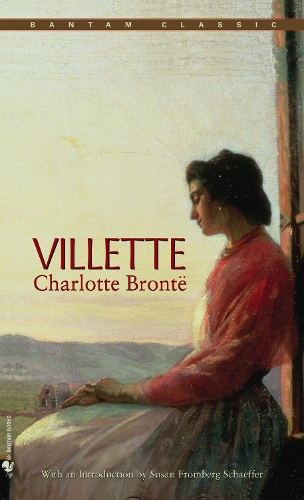
Villette
(Paperback)
Available Formats
Paperback
Published: 15th July 2007
Paperback
Published: 18th June 2019
Paperback
Published: 16th October 2005
Paperback
Published: 21st September 2015
Paperback
Published: 6th May 2014
Publishing Details
Villette
By (Author) Charlotte Bronte
Bantam Doubleday Dell Publishing Group Inc
Bantam USA
15th July 2007
United States
Classifications
General
Non Fiction
FIC
Physical Properties
Paperback
576
Width 107mm, Height 170mm, Spine 33mm
306g
Description
With her final novel, Villette, Charlotte Bronte reached the height of her artistic power. First published in 1853, Villette is Bronte's most accomplished and deeply felt work, eclipsing even Jane Eyre in critical acclaim. Her narrator, the autobiographical Lucy Snowe, flees England and a tragic past to become an instructor in a French boarding school in the town of Villette. There, she unexpectedly confronts her feelings of love and longing as she witnesses the fitful romance between Dr. John, a handsome young Englishman, and Ginerva Fanshawe, a beautiful coquetter. This first pain brings others, and with them comes the heartache Lucy has tried so long to escape. Yet in spite of adversity and disappointment, Lucy Snowe survives to recount the unstinting vision of a turbulent life's journeya journey that is one of the most insightful fictional studies of a woman's consciousness in English literature.
Reviews
"Bronts finest novel."Virginia Woolf
Author Bio
Emily Jane Bront was the most solitary member of a unique, tightly-knit, English provincial family. Born in 1818, she shared the parsonage of the town of Haworth, Yorkshire, with her older sister, Charlotte, her brother, Branwell, her younger sister, Anne, and her father, The Reverend Patrick Bront. All five were poets and writers; all but Branwell would publish at least one book.
Fantasy was the Bront childrens one relief from the rigors of religion and the bleakness of life in an impoverished region. They invented a series of imaginary kingdoms and constructed a whole library of journals, stories, poems, and plays around their inhabitants. Emilys special province was a kingdom she called Gondal, whose romantic heroes and exiles owed much to the poems of Byron.
Brief stays at several boarding schools were the sum of her experiences outside Haworth until 1842, when she entered a school in Brussels with her sister Charlotte. After a year of study and teaching there, they felt qualified to announce the opening of a school in their own home, but could not attract a single pupil.
In 1845 Charlotte Bront came across a manuscript volume of her sisters poems. She knew at once, she later wrote, that they were not at all like poetry women generally writethey had a peculiar musicwild, melancholy, and elevating. At her sisters urging, Emilys poems, along with Annes and Charlottes, were published pseudonymously in 1846. An almost complete silence greeted this volume, but the three sisters, buoyed by the fact of publication, immediately began to write novels. Emilys effort was Wuthering Heights; appearing in 1847 it was treated at first as a lesser work by Charlotte, whose Jane Eyre had already been published to great acclaim. Emily Bronts name did not emerge from behind her pseudonym of Ellis Bell until the second edition of her novel appeared in 1850.
In the meantime, tragedy had struck the Bront family. In September of 1848 Branwell had succumbed to a life of dissipation. By December, after a brief illness, Emily too was dead; her sister Anne would die the next year. Wuthering Heights, Emilys only novel, was just beginning to be understood as the wild and singular work of genius that it is. Stronger than a man, wrote Charlotte, Simpler than a child, her nature stood alone.
